-
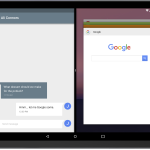
Android N's new split screen mode on a tablet.
-
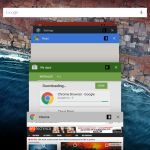
Here's the old split screen mode from the Android M Developer Preview—notice the buttons next to the "x"? There are no buttons like this in the Android N screenshot.
-
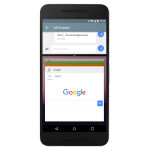
Android N's split screen mode on a phone.
-
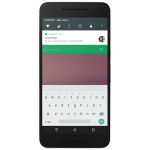
The new notification panel, with a quick reply in progress.
Before you get too invested in the interface on display here, it's worth noting that the Android M Developer Preview has gone through several designs (like the weird letter-indexed app drawer) and features (day/night mode) that have not made it to the Developer Preview. In fact, the whole point of this super-early preview seems to be to gather as much feedback as possible. "The sooner we hear from you, the more of your feedback we can integrate," Google says.
As we saw in the Android M Developer Preview, Google has been working hard on matching Windows and iOS by building a native side-by-side app mode in Android. For Android N, the feature is apparently ready for prime time. The gallery above shows off the feature, which works on tablets and phones—it looks a lot like what is currently shipping on Samsung phones. The one question mark is how to actually turn it on and control it. On Samsung phones and in the Android N app preview, for instance, buttons on the recent app screen would trigger split screen mode. There are no such buttons in the screenshots.
Like most of the big platform changes, developers will need to opt in to split-screen mode by targeting Android N and adding a new manifest attribute called android:resizableActivity to their apps. This attribute lets developers specify minimum allowable dimensions and whether to resize the app on the fly or kill the activity and redraw it with new dimensions. There's also a new "picture in picture" mode, which we presume turns apps into tiny floating windows.
Further Reading
Notifications can also be "bundled" now from a single app, which sounds a lot like how Android Wear works. Developers can choose to put an app's notification stack into a single line; tapping on the new expand button or using a two-finger gesture will then expand the bundled notifications.
Google's power-saving "Doze" mode has been improved in Android N, too. Previously, it only worked when the phone was stationary, but now Google says that "Doze additionally saves battery whenever the screen turns off." We'll have to dig into the exact implications of this change, but originally, Doze would disable network access and wake locks, with only apps using "high-priority messages" being able to push through Doze mode. Using this system every time the phone shuts off wouldn't be something that everyone would want, but we'll have to see how it works in practice. We'd guess that "screen off" is a less extreme version of Doze, while "stationary" is a stricter version. Google also says it has done more work on "Project Svelte," making Android run better on lower-specced devices.
Further Reading
As usual, the developer preview doesn't have a name yet—it's still just "Android N." However, Hiroshi Lockheimer, the head of Android, has been having a lot of fun teasing everyone about the new name, saying in a separate blog post, "What will the N-release be named? We’re nut tellin’ you yet." Will "Nutella" be the new name? Lockheimer also mentions that Google will " hand off the final N release to device makers this summer." Will OEMs get some time alone with Android N, or was that a release date window?
If you're interested in trying the Developer Preview, Google is launching the "Android Beta Program" over at g.co/androidbeta. It seems to just be over-the-air delivery of the Developer Preview, while the traditional full images are still available at developer.android.com/preview. Google warns that this preview is "for developers only and not intended for daily use or consumer use."
Those are all the features Google announced, but we haven't gotten to try out Android N yet for ourselves. There are certainly tons more goodies hidden inside. We'll load it up and be back for a full hands-on later.
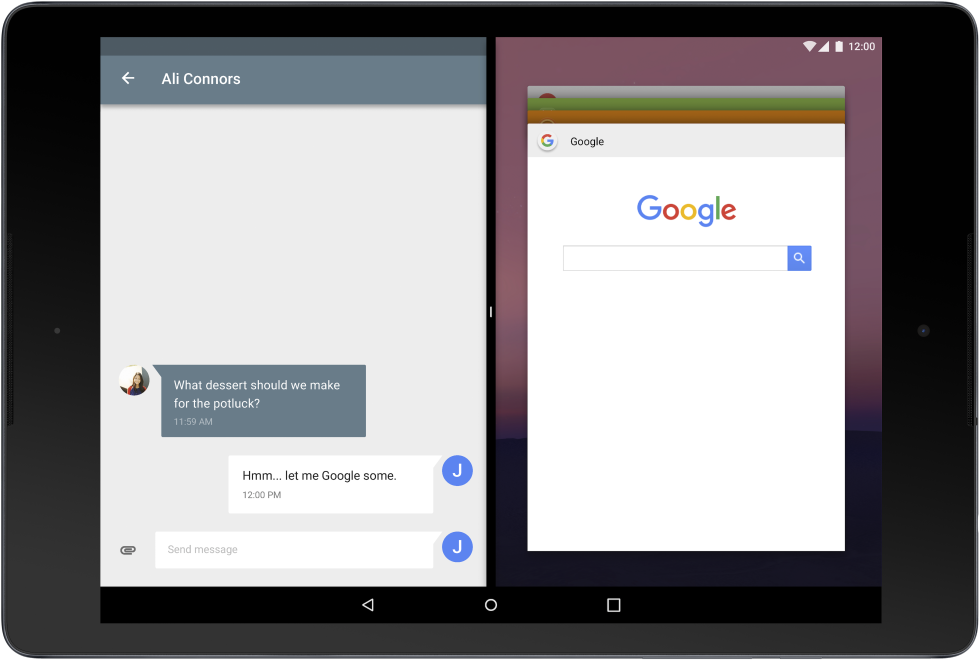


You must login or create an account to comment.